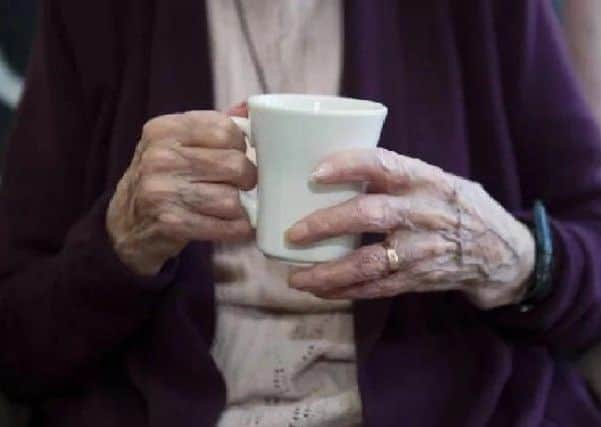Calls for closure of dementia care ward to be reviewed


The councillor’s call came during a meeting of the Comhairle’s Communities and Housing Committee (Tuesday), and he claimed that since the closure of Clisham Ward in October 2018, local care homes which were already operating at capacity were now “struggling to deal” with residents with dementia who had challenging behaviour and who should, the councillor stated, “be cared for in other establishments.”
The councillor’s comments came in response to a report to the committee by Dr Ron Culley, Chief Officer of the Western Isles’ Integration Joint Board (IJB), a joint health board and comhairle body that oversees health and social care on the islands.
Advertisement
Hide AdAdvertisement
Hide AdIn his report, Dr Culley had detailed the financial pressures the IJB was facing due to the increased cost of specialist mental health placements on the mainland and Cllr MacLean commented that since the closure of Clisham Ward there had been no financial savings as a result of the move and the IJB was showing a potential overspend of its budget.
Cllr MacLean added that the IJB “was not fit for purpose and needs more accountability”.
In response, Dr Ron Culley stated that the closure of Clisham Ward had not been driven by solely financial considerations but by the quality of care and the ‘outcomes’ for patients living with dementia.
The Chief Officer stated that the financial issues faced by the IJB in the cost of placements was not due to patients with dementia but to addressing the needs of patients with “a wide-range of mental health problems requiring specialist mainland care, and that has always been the case.”
Advertisement
Hide AdAdvertisement
Hide AdDr Culley also stated that, in terms of accountability, the operation of the IJB was established by Scottish Government statute, and that would be up for review.
Dr Culley said: “Dementia presentations are often very different and complex and can result in quite distressed behaviours.
“We’ve always had these challenges in the islands and we’ve always struggled to deal with them in the islands. The inputs required were never fully available even in Clisham Ward.”
Dr Culley stated that there were currently 400-450 people in the islands living with dementia and that “only a handful’ required support in “a medical environment”.
Advertisement
Hide AdAdvertisement
Hide AdSupporting the statements made by Cllr MacLean, Stornoway South councillor Rae MacKenzie, repeated the call for a review of the closure of the ward.
Dr Culley replied that he was not convinced that long-term hospital care was “the way forward” and described long-term or permanent hospital care for patients with dementia as “dehumanising”.
“The better arrangement”, Dr Culley said, was to have care services in the community that could avoid “acute crisis”.
Cllr MacLean then said that he did not accept that long-term residency in Clisham Ward could be described as “dehumanising”, and praised the quality of staff and care that Clisham Ward had provided.
Advertisement
Hide AdAdvertisement
Hide AdDr Culley replied: “We shouldn’t condemn people with dementia to living in a hospital.
“People live in communities, they don’t live in hospitals and, in terms of dealing with the complexity of presentations of dementia in care homes, the best solution is to allow for the care of health professionals to reach into those care homes.”